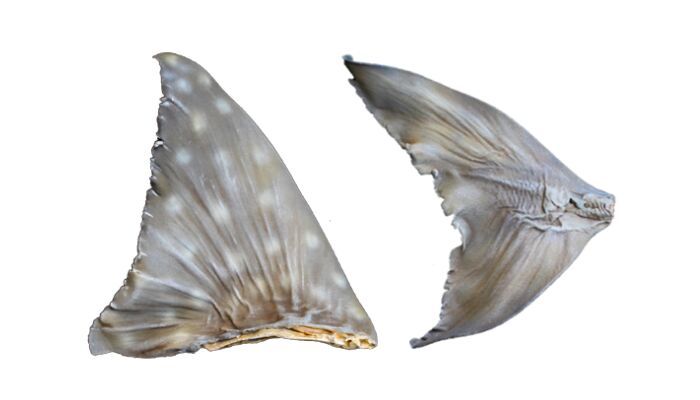
These Artificial Shark Fins Help Fight the Illegal Trade In Marine Wildlife
Rahul Kalvapalle — August 13, 2021 — Social Good
References: traffic.org & 3dnatives
TRAFFIC, a charitable organization that is dedicated to fighting a variety of illegal wildlife activities such as poaching and unsanctioned fishing and trade, is using the world's first 3D-printed shark fins to help authorities enforce protections against endangered species of sharks.
The 3D-printed shark fins are made using selective laser sintering (SLS) technology, which gives them a realistic texture. The source scanning files as well as printing instructions for 22 different kinds of fins are available for free, with law enforcement officials able to obtain them and use SLS-equipped 3D-printers to print them.
By making these highly accurate 3D-printed shark fins available, TRAFFIC is looking to ensure that customs officials and other authorities will be able to use the 3D-printed fins to identify shark species and better coordinate their efforts to fight illegal hunting of sharks in the world's oceans.
Image Credit: TRAFFIC
The 3D-printed shark fins are made using selective laser sintering (SLS) technology, which gives them a realistic texture. The source scanning files as well as printing instructions for 22 different kinds of fins are available for free, with law enforcement officials able to obtain them and use SLS-equipped 3D-printers to print them.
By making these highly accurate 3D-printed shark fins available, TRAFFIC is looking to ensure that customs officials and other authorities will be able to use the 3D-printed fins to identify shark species and better coordinate their efforts to fight illegal hunting of sharks in the world's oceans.
Image Credit: TRAFFIC
Trend Themes
1. Marine Wildlife Conservation - The 3D-printed shark fins demonstrate the potential for technology to aid in the conservation efforts for endangered marine species through advanced identification and enforcement measures.
2. 3D Printing for Law Enforcement - Selective laser sintering (SLS) technology presents a new avenue for law enforcement officials to create accurate and cost-effective replicas for use in investigations.
3. Open-source Printing Instructions - Making the scanning files and printing instructions available for free encourages innovation in not only the fight against illegal fishing, but also in the potential applications for printing realistic replicas for other scientific, educational, or entertainment purposes.
Industry Implications
1. Law Enforcement - Law enforcement agencies can leverage the availability of this technology to disrupt illegal trade in marine wildlife and potentially even other illegal activities.
2. 3D Printing - The use of SLS technology for 3D-printed replicas presents an innovative opportunity for new applications in fields ranging from forensics to education.
3. Environmental Conservation - Organizations focused on the protection of endangered species can use the success of this project to spur further innovations in technology and further serve their mission to protect wildlife.
4.7
Score
Popularity
Activity
Freshness























